N.C. earns a C in Surfrider’s annual State of the Beach report
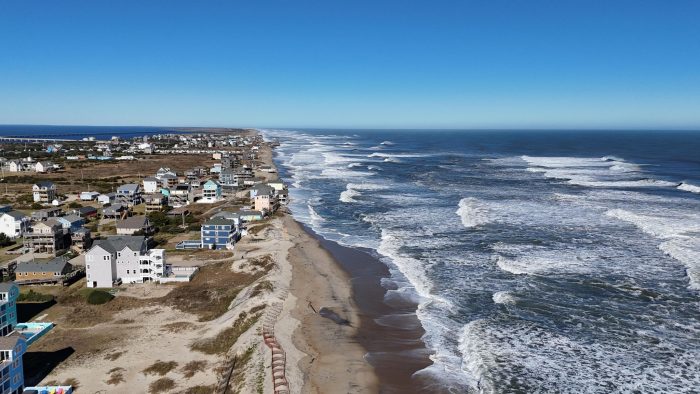
From SamWalkerOBXNews.com
The Surfrider Foundation has released its seventh annual State of the Beach Report, which grades 30 states and the territory of Puerto Rico on comprehensive laws and policies to protect our nation’s beaches from coastal erosion, sea level rise, and poorly planned development.
Founded in 1984, the Surfrider Foundation is a nonprofit organization with over one million members and more than 200 volunteer-led chapters in the U.S., including on the Outer Banks.
According to the report, nearly 70% of coastal states are doing a poor job of managing their coastlines and planning for climate change impacts, with North Carolina receiving a grade of C for 2023.
“The North Carolina coastline is increasingly vulnerable to extreme weather events and rising sea levels, posing a threat to the overall well-being of coastal communities,” the report states.
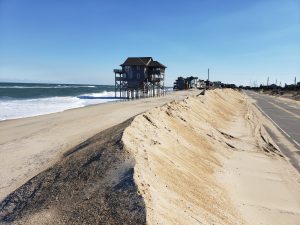
“In 2021, the state took steps to enhance its planning for sea level rise by conducting a more in-depth analysis of risks and vulnerabilities. Over the past few years, at least four homes have fallen into the ocean in Rodanthe.
“In 2023, with help from the North Carolina Division of Coastal Management, an interagency work group was established to explore how to prevent houses on beaches from collapsing into the ocean and will be analyzing and developing a series of managed-retreat options as well as protection and accommodation measures.”
The report gives the state’s Beach and Inlet Management Plan an “OK” score, but criticized North Carolina for relying “too much on sand replenishment.
North Carolina law prohibits hardened structures such as jetties and seawalls along the coastal shoreline, but Surfrider gives it a “Bad” ranking because “unfortunately, current policy allows the permanent placement of sandbags, which contradicts the statewide ban on new permanent erosion control structures.”
They also note the state allows terminal groins, like the rock structure that protects the southern landing of the Marc Basnight Bridge at Oregon Inlet.
When it comes to development, North Carolina gets an “OK”, complimenting Coastal Area Management Act provisions that require a minimum setback of 60 feet, and policies based on erosion rates and structure size.
Surfrider gives the state an “OK” for making “significant strides with sea level rise planning in the past few years.”
They complimented Governor Roy Cooper’s executive order that led to a Climate Risk Assessment and Resiliency Plan that was published in 2020.
“The plan includes projected changes in sea level rise and requires state agencies to analyze climate change impacts and integrate climate change adaptation measures into state programs and operations,” Surfrider notes.
But they said the “risk assessment lacks vulnerability maps produced by the state, and other current policies limit sea level rise adaptation.”
The report also points out the N.C. Division of Coastal Management published a Planning Handbook to support local implementation of the Resilient Coastal Communities Program.
And Surfrider notes the state Department of Environmental Quality, at the direction of the N.C. General Assembly, engaged in development of a Flood Resiliency Blueprint, including an online decision support tool, to serve as a resource to reduce and mitigate flooding.
Recommendations made by the Surfrider report for North Carolina include:
- Continue to work with communities to implement the Climate Change Risk Assessment and Resilience Plan.
- Support the integration of sea level rise planning into local and regional plans.
- Amend 113A-107.1 of the Environmental Policy Act to mandate planning for sea level rise.
- Enforce prohibitions on the construction of groins and jetties.
- Establish a state policy that prohibits local jurisdictions from allowing developments on coastal sand dunes.
- Implement strict monitoring requirements to determine the efficacy and ecological impacts of beach replenishment.
- Prohibit temporary sandbag placement from becoming long-term or permanent armoring.
- Implement stronger environmental management policies, both inland and at the coast.
Washington was the only state to improve from a year ago, rising to A. Two states experienced reductions, with New Jersey falling from D to F and Florida from C- to D-.
Of the 31 states and territories assessed, 21 earned a grade of C or less and are doing an ‘adequate to poor’ job.
The foundation said those states “tend to have less stringent policies regarding development in hazardous coastal zones, ineffective/nonexistent prohibitions on coastal armoring, poor sediment management, and lack sea level rise policies.”
“Given the increase in extreme weather events and climate change impacts, progressive laws and policies must be passed and effectively implemented at the local, state, and federal levels to safeguard our precious coastlines and communities,” said the Surfrider Foundation’s Senior Manager of the Coast and Climate Initiative, Stefanie Sekich.
“Our report finds that states who score poorly often lack effective implementation of existing laws and policies,” Sekich said.
“Over the years, there has been a trend of states passing strong climate change impact laws, but never actually implementing the laws and policies on the books,” according to Sekich.
“That is precisely why we publish this report every year — to ensure states are not only passing important legislation to protect our coastlines, especially in light of climate change, but are also properly implementing laws,” Sekich said.
In contrast, the highest-scoring states had strong policies and enforcement regarding coastal building setbacks, restrictions on coastal armoring, limiting development/redevelopment in harm’s way, and are advancing progressive sea level rise policies that encourage local governments to incorporate climate adaptation measures into their land use plans.
Along with risk assessment, the State of the Beach Report also “provides a pathway for improved climate resilience” the group said.
Over the past year, Surfrider advocated that funds from the Bipartisan Infrastructure Law (BIL) and Inflation Reduction Act (IRA) go specifically toward coastal restoration and climate-resilience planning.
Surfrider said they helped to secure an unprecedented $6 billion in funding for coastal resilience, in what they call “a significant victory for our ocean and coasts.”
They have also published a guide to help better educate the public about these BIL and IRA funds, which enables tribes, states, and cities to identify and use these funds to update municipal land use planning and advance nature-based solutions to make our coastal communities more climate resilient.
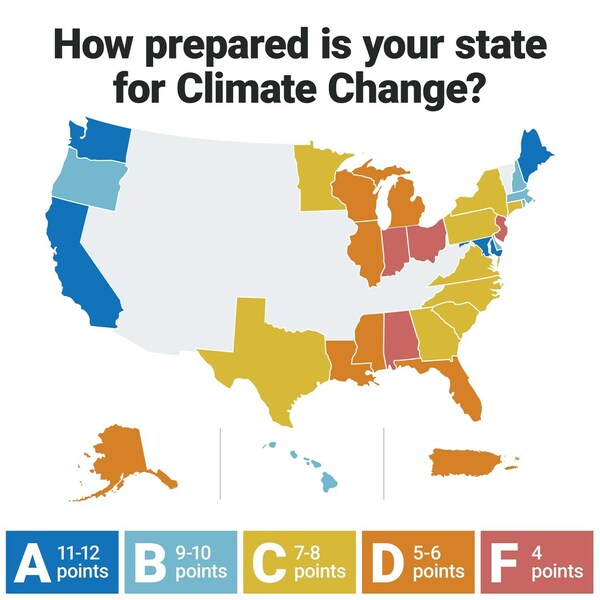




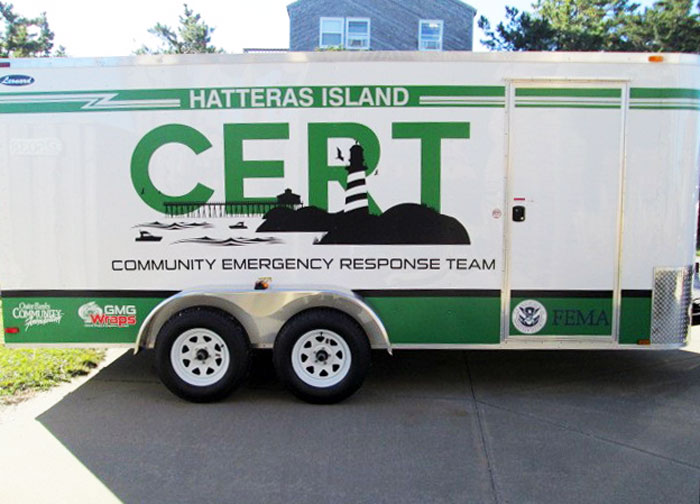
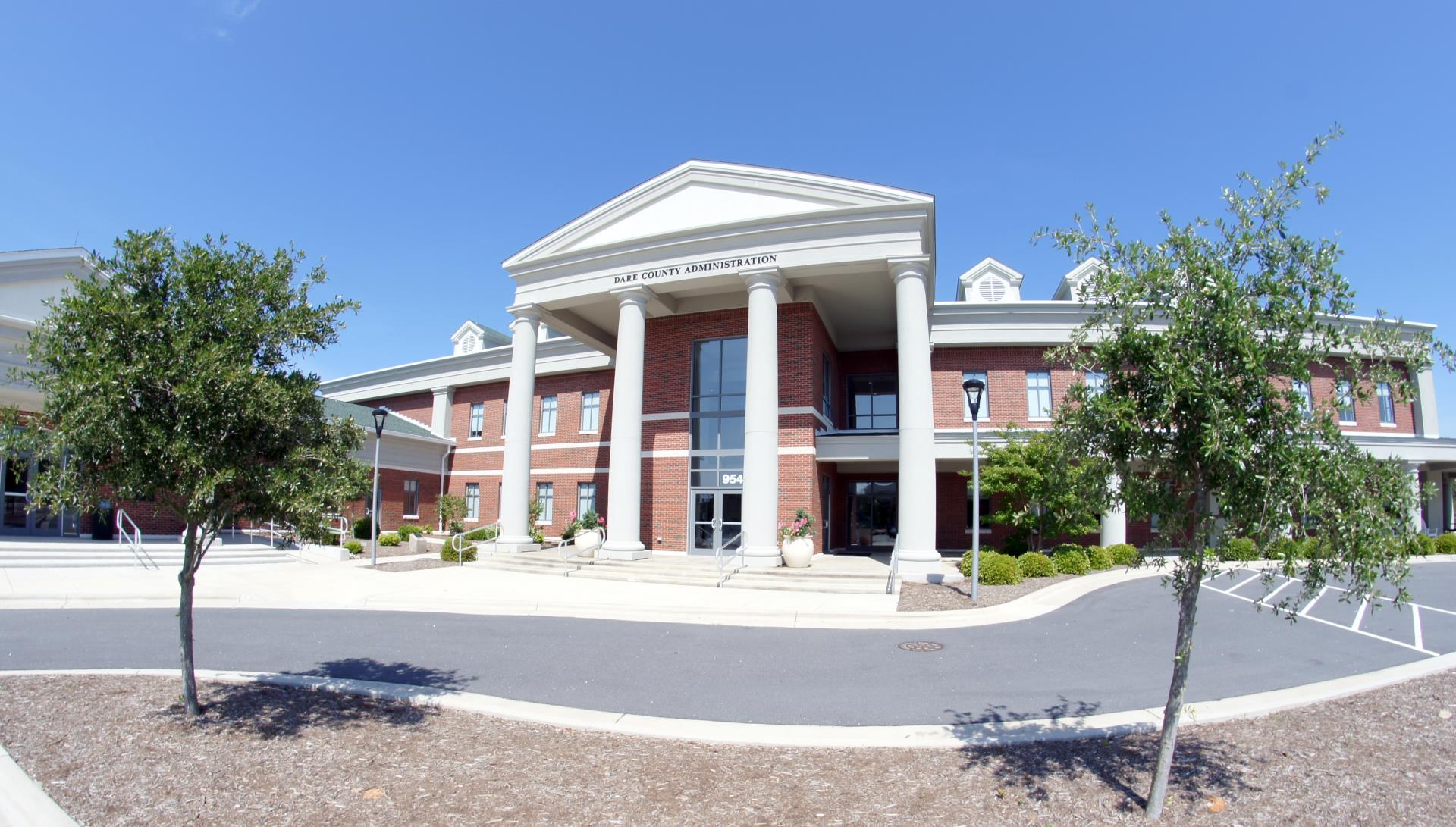

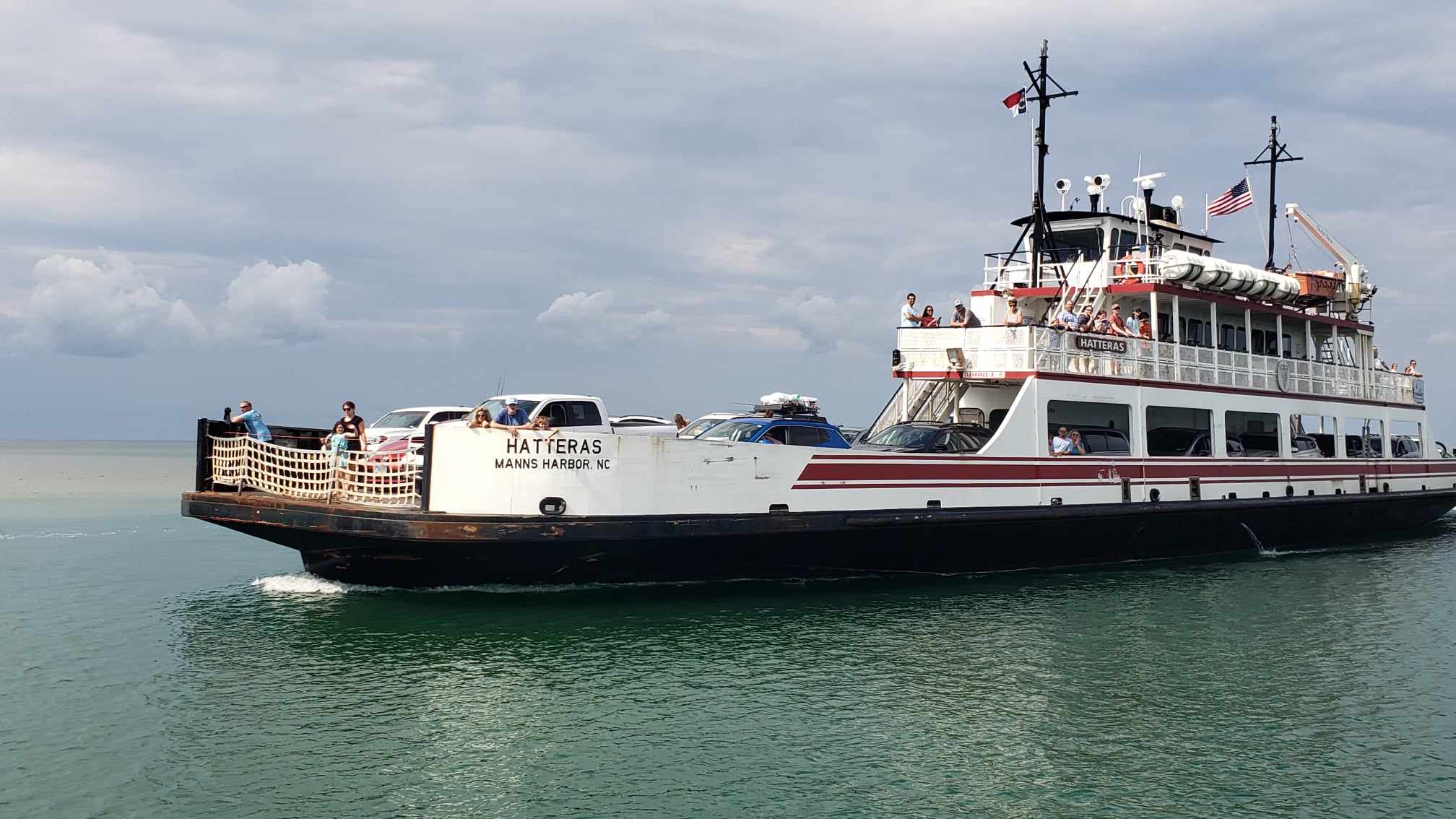

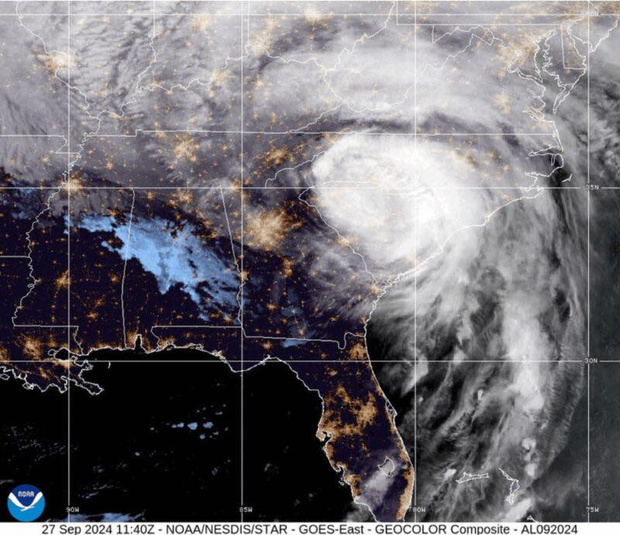
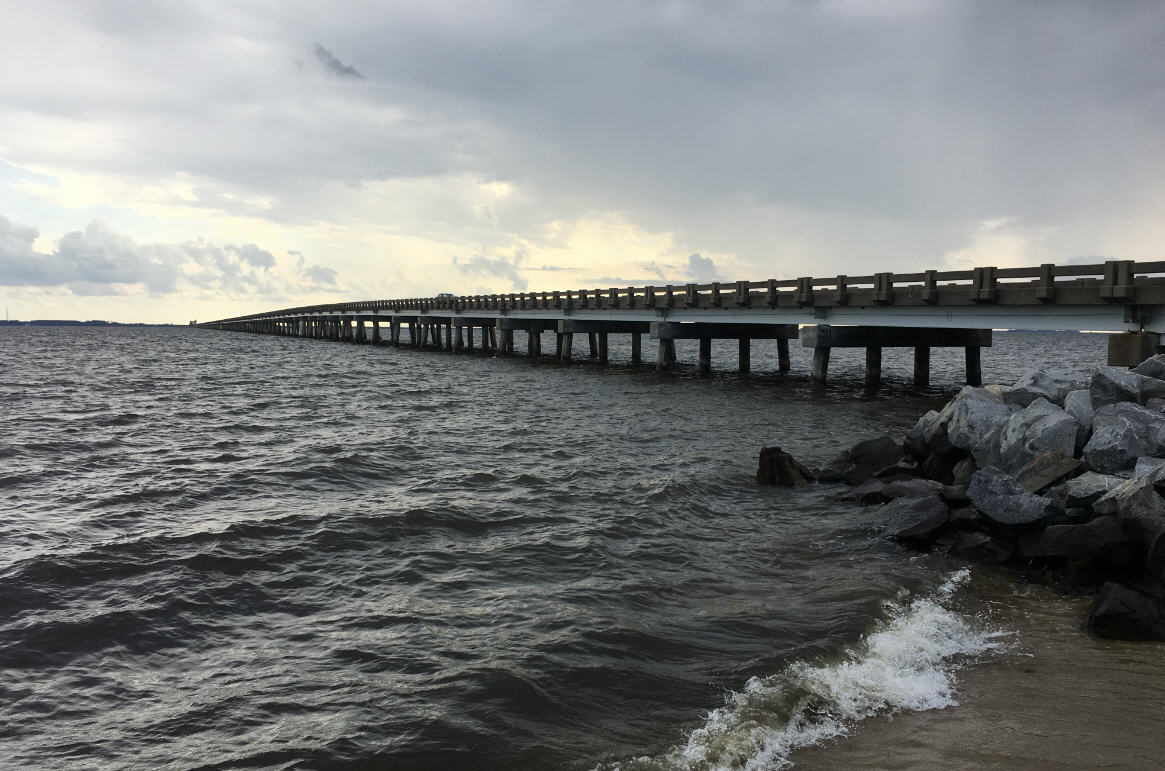
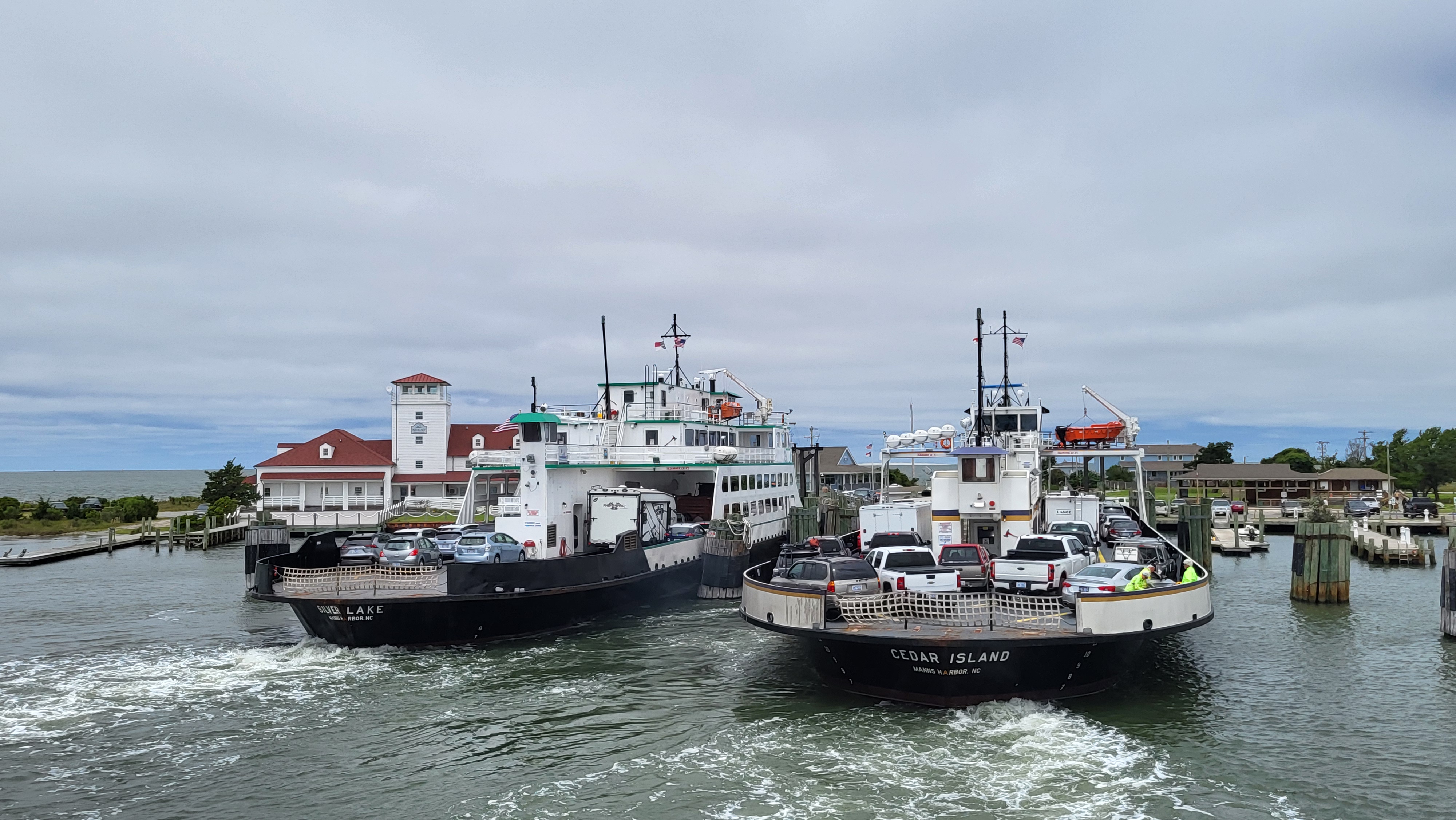


What a joke, Surfrider Foundation must be made up of a bunch of left wing nuts? There is no man-made climate change, man can’t change the climate. Get real.
LOL. Yeah. The law of gravity is also a hoax. Go walk off a high rooftop and test it. Even oil companies have know about a human induced enhancement of the greenhouse effect since the 1950s. It’s simple physics. You know, like the law of gravity.
The law of gravity has nothing to do with the con known as global warming. The original term “Man made global warming” became discredited among thinking people and thus was changed to “climate change”. Nice try, but those of us with functioning minds and an actual education understand that climate change is constant and occurs with or without man.
There is no measurable recent change in the earths temperature, there is just the hysterical made up BS. There is no “science” that proves man has any true detrimental impact on a global basis, just hysterical made up BS.
“It’s simple physics”. Yes, something which you obviously know little about. Try studying the earths climate history and get back to us.
Global warming/climate change is a scam. It’s perpetrated by fools and communists to extract as much power and control from us as possible.
“What a joke…”
Yes, absolutely, a criminal joke to be clear. All of these organizations are funded by those who do not have the best interests of the American people in mind.